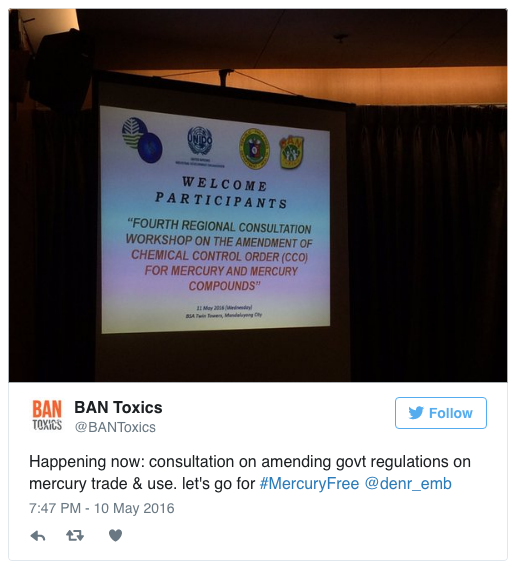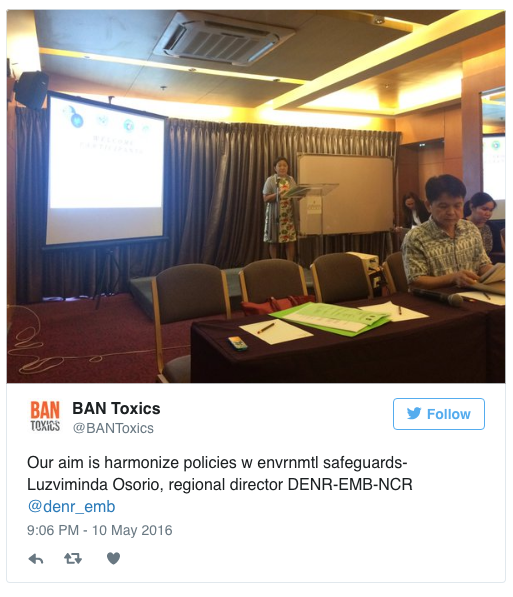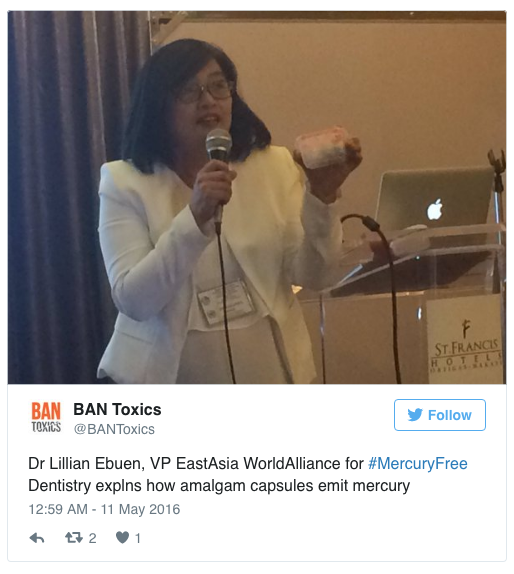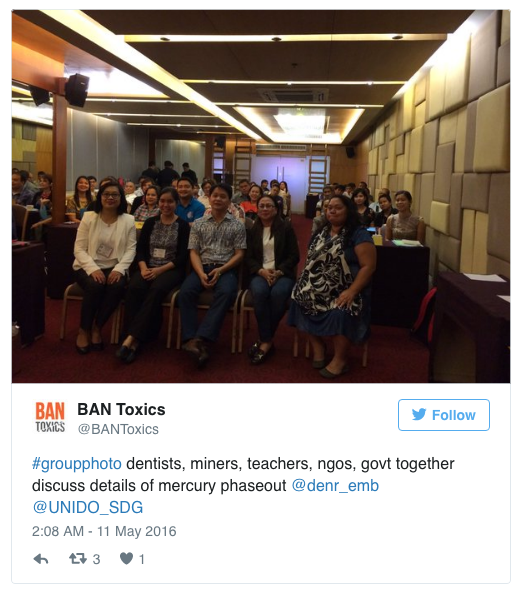Participating in drafting chemical policies
Ever wonder how chemical policies are drafted and updated? It’s not something we think about everyday, but it’s comforting to know that the most harmful chemicals are regulated by a policy called a Chemical Control Order. Read on to find out how the citizenry participates in making these policies.
A Chemical Control Order or CCO prohibits, limits, or regulates the use, manufacture, import, export, transport, processing, storage, possession and wholesale of the most harmful chemicals.
One chemical currently regulated is mercury. Mercury is highly toxic and causes serious health problems. The challenge is it is still used very widely. For example, did you know it is used as a dental cavity filling called dental amalgam?
In the past few months, BAN Toxics has been part of a series of consultations on the updating of the Chemical Control Order for Mercury and Mercury Compounds. The proposed new CCO for mercury will prohibit previously exempted uses of mercury, such as its use as dental fillings.
BAN Toxics is working with UNIDO and the DENR-EMB on initiatives to reduce and eliminate mercury use in the Philippines.
The Environmental Management Bureau of the Department of Environment and Natural Resources is in charge of developing and updating Chemical Control Orders.
In the past several months, together with BAN Toxics and the UN Industrial Development Organization, they conducted a series of consultation workshops with industries that use or engage in mercury trade. This includes small-scale gold miners and dentists.
In the final regional consultation in NCR, EMB Regional Director for NCR welcomed all the participants. There were miners from Camarines Norte as well as dentists from Manila and Rizal.
The consultations are part of a project implemented by UNIDO. Under that project, BAN Toxics’ work is to help eliminate mercury use in small-scale gold mining.
Miners use mercury to extract gold from ore because, although harmful to health, it is easy to do. But a safer and better process, gravity concentration method, lets them extract more gold.
Eve Cubelo, BAN Toxics Program Manager for Development, gave the audience an overview of how BAN Toxics is working on the ground with small-scale miners to shift them to safer and more advanced mercury-free methods.
Mercury use in small-scale gold mining is illegal. But did you know miners are able to access mercury under the table?
Unfortunately, mercury is sold openly by dental clinics in mining areas. Dental clinics acquire mercury for use in dental amalgam, which under the old CCO, is legal. But some clinics go on to sell it for mining, which is illegal.
Almost all industries are now phasing out the use of mercury now that mercury use globally is being eliminated.
But there are some people who would like to keep mercury traded and imported into the country for use as tooth fillings. This is a bit alarming as it will keep mercury flowing into the country.
Also, just like in mining, mercury use endangers the health of dentists and patients. Amalgam also goes to the waste water of the dental clinic, eventually polluting an waterways with mercury!
Dr Lilian Ebuen is a denist who espouses mercury-free dental practice. Using actual props–elemental mercury as well as dental amalgam capsules–she explained how using mercury is a serious occupational risk for dentists. Dr Ebuen is the Vice President for East Asia of the World Alliance for Mercury-Free Dentistry.
The DENR also presented the proposed revisions to the Chemical Control Order, and facilitated a discussion among the participants. BAN Toxics recommended a short phase out period (year 2020) for mercury use in dentistry.
The consultation was very open. Miners and dentists, representatives from the Bureau of Customs, from dental schools, and from trading companies shared their experiences and opinions.
But the work isn’t finished yet! The proposed revision to the CCO for mercury will be finalized and then circulated to other agencies in the DENR and other government departments before it is adopted as policy. This may happen any time this year.
Consultations like these are important to let the voices of different sectors be heard. Thanks to the DENR-EMB for hosting these consultations!





